TRACING OCHRE
Changing Perspectives on the Beothuk
Edited by Fiona Polack
The supposed extinction of the Indigenous Beothuk people of Newfoundland in the early nineteenth century is a foundational moment in Canadian history. Increasingly under scrutiny, non-Indigenous perceptions of the Beothuk have had especially dire and far-reaching ramifications for contemporary Indigenous people in Newfoundland and Labrador.
Tracing Ochre reassesses popular beliefs about the Beothuk. Placing the group in local, national, and global contexts, Fiona Polack and a diverse collection of contributors juxtapose the history of the Beothuk with the experiences of other Indigenous peoples, including those living in former European colonies as diverse as Tasmania, South Africa, and the islands of the Caribbean. Featuring contributions of Indigenous and non-Indigenous thinkers from a wide range of scholarly and community backgrounds, Tracing Ochre aims to definitively shift established perceptions of a people who were among the first to confront European colonialism in North America.
FIONA POLACK is an associate professor in the Department of English at Memorial University.
EDITED BY FIONA POLACK
Tracing Ochre
Changing Perspectives on the Beothuk
UNIVERSITY OF TORONTO PRESS
Toronto Buffalo London
University of Toronto Press 2018
Toronto Buffalo London
utorontopress.com
Printed in Canada
ISBN 978-1-4426-5046-6 (cloth) ISBN 978-1-4426-2842-7 (paper)
 Printed on acid-free, 100% post-consumer recycled paper with vegetable-based inks.
Printed on acid-free, 100% post-consumer recycled paper with vegetable-based inks.
Library and Archives Canada Cataloguing in Publication
Tracing ochre : changing perspectives on the Beothuk / edited by Fiona Polack.
Includes bibliographical references and index.
ISBN 978-1-4426-5046-6 (cloth). ISBN 978-1-4426-2842-7 (paper)
1. Beothuk Indians Newfoundland and Labrador History. I. Polack, Fiona, 1969, editor
E99.B4T73 2018971.80049733C2018-900479-7
University of Toronto Press acknowledges the financial assistance to its publishing program of the Canada Council for the Arts and the Ontario Arts Council, an agency of the Government of Ontario.

Contents
FIONA POLACK
MAURA HANRAHAN
CYNTHIA SUGARS
ELIZABETH PENASHUE AND ELIZABETH YEOMAN
JOHN HARRIES
CHRISTOPHER AYLWARD AND CHIEF MISEL JOE
PATRICK BRANTLINGER
DARYL PULLMAN
LISA RANKIN
LIANNE C. LEDDY
CHRISTOPHER AYLWARD
BEVERLEY DIAMOND
JOCELYN THORPE
BONITA LAWRENCE
FIONA POLACK
J. EDWARD CHAMBERLIN
Preface
Tracing Ochre: Changing Perspectives on the Beothuk is a collaborative enterprise between Indigenous and non-Indigenous thinkers. We came together to produce this book because of our shared conviction that prevailing conceptions of Newfoundland and Labradors, if not Canadas, best-known Indigenous group need to change. Evidence is building that the Beothuk were not a primitive and isolated people. An expanding current of research is also unpacking the colonial mentalities that have shaped perceptions of the Beothuk over centuries. Yet much of this revisionist thinking has yet to enter the wider public domain to a significant degree. Our intention, then, has been to combine our voices in order to further discussion. There are pressing reasons for doing so. As many of us emphasize in the essays that follow, established wisdom about the Beothuk has created significant problems for contemporary Indigenous peoples in Newfoundland and Labrador. Indeed, within the issues at stake here can be seen signs of broader patterns that cause problems for the relationship between Indigenous and non-Indigenous peoples in Canada as a whole.
Contributors to this volume have First Nation affiliations that include Mikmaq, Anishinaabe, and Innu, and national ones encompassing Canada, the United States, Australia, and Scotland. The scholars among us are based in a variety of disciplines and interdisciplines, including English, history, education, anthropology, ethnomusicology, medical ethics, archaeology, Indigenous studies, and gender studies. I am immensely grateful to this diverse and extraordinary group of people for agreeing to participate in Tracing Ochre, for entering so generously and productively into conversation, and for writing their thought-provoking essays. Particular thanks to Christopher Aylward, whose doctoral dissertation I co-supervised and whose thinking about the Beothuk has helped deepen my understanding of the First Nations place in Newfoundland and Labradors Indigenous and non-Indigenous cultures as well as my appreciation of the far-reaching impacts of historiography. I would also like to thank the Social Sciences and Humanities Research Council for its support. Receiving a SSHRC Standard Research Grant in 2007 for an interdisciplinary research project juxtaposing the lives and after-lives of two women each mistakenly termed last of her race by European settler cultures, the Aboriginal Tasmanian Truganini and the Beothuk Shanawdithit, constituted the first and most important step in the path culminating in my editing of this book. A SSHRC Connection Grant also allowed Tracing Ochres contributors to gather in St Johns to share drafts of our chapters in June 2013 a meeting that was essential to the formulation of this volume. Lianne Leddy has my particular gratitude for collaborating on writing the SSHRC grant application and helping design and run the workshop. Memorial University has also given extensive help in both direct and indirect ways, and graduate students Ian Moffatt, Lori-Ann Campbell, Kerry ONeill, Heather Gogacz OBrien, and Elizabeth Hicks provided stellar assistance. Peter Ramsdens aid in devising maps for this volume is much appreciated. Thanks to the University of Toronto Press, especially Douglas Hildebrand, for supporting and shepherding Tracing Ochre, and to the anonymous peer reviewers whose comments helped strengthen the collection. UTP and the American Anthropologist have graciously facilitated the publication of Daryl Pullmans essay in both book-chapter and journal-article form. Finally, on a personal note, my love and gratitude to Rob Finley and Susannah Polack-Finley.
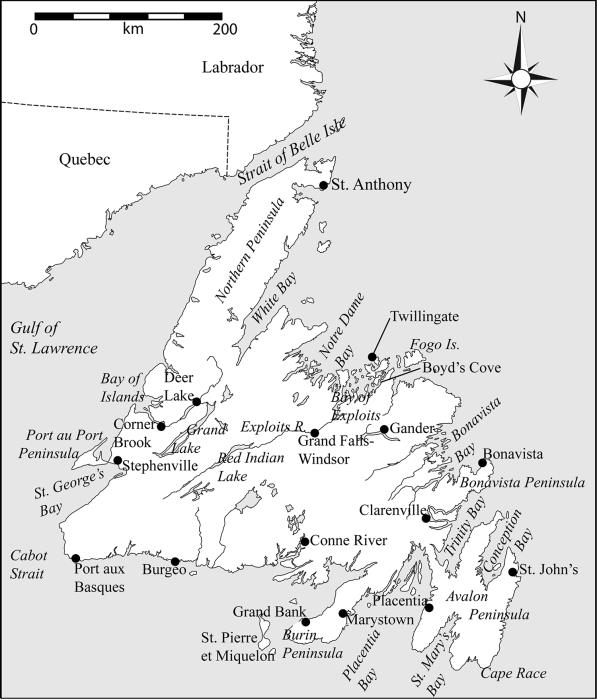
Map 1 The island of Newfoundland. Map: Peter Ramsden
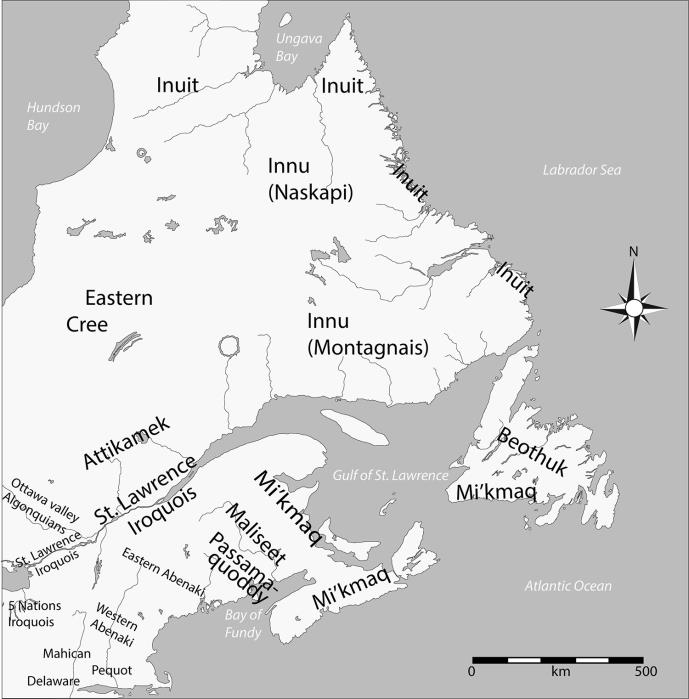
Map 2 Indigenous territories in northeastern North America. Map: Peter Ramsden
TRACING OCHRE
Changing Perspectives on the Beothuk
Introduction: De-islanding the Beothuk
FIONA POLACK
Islands have long exerted a tenacious hold on European imaginations. The Western tendency to bestow meaning on discrete and bounded entities may well have something to do with this. As historian John Gillis observes, we not only think of our individual selves as islands, but conceive of nations, communities, and families in the same insular fashion, ignoring that which connects in favour of stressing that which separates and isolates.

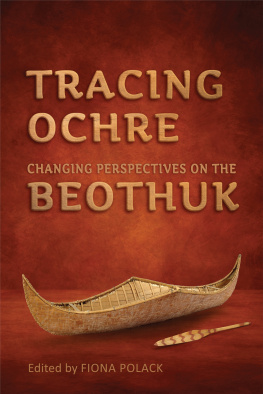

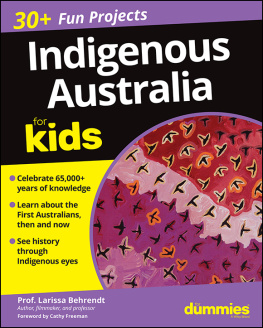
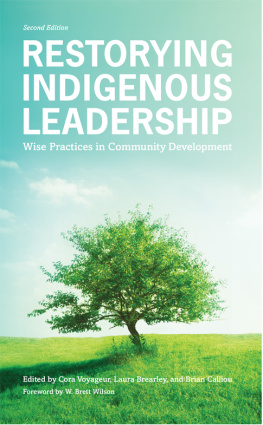
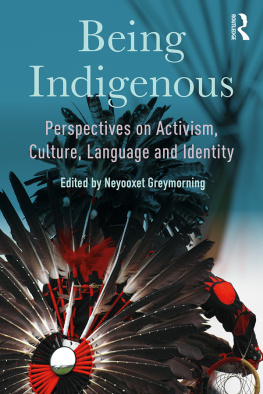
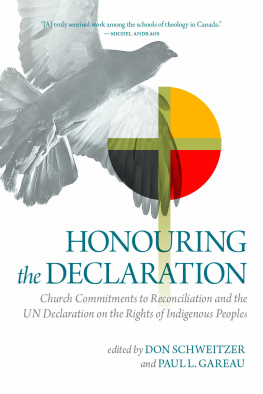
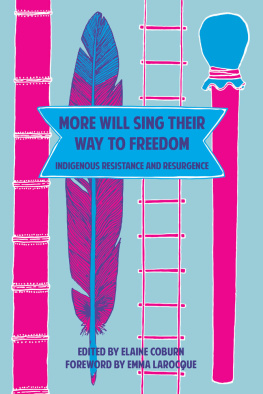
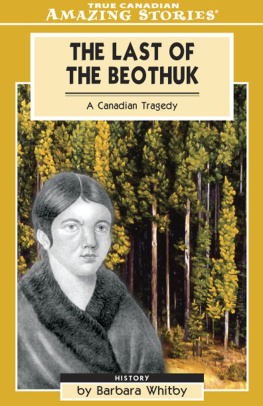

 Printed on acid-free, 100% post-consumer recycled paper with vegetable-based inks.
Printed on acid-free, 100% post-consumer recycled paper with vegetable-based inks.

